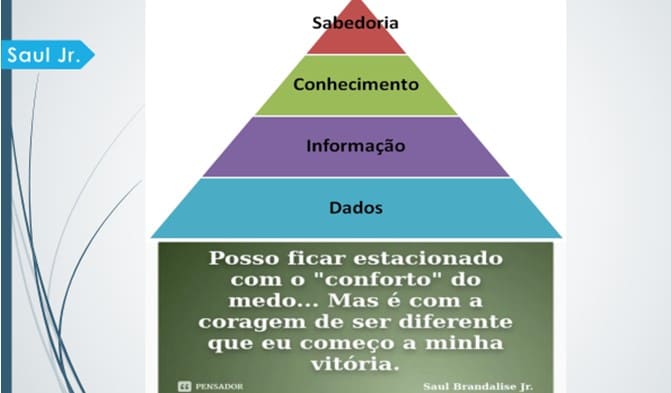Why are we jealous?

Autor Bel Cesar
Assunto STUM WORLDAtualizado em 19/05/2006 16:00:40
Translated by Mônica Reis - [email protected]
Jealousy is an uncomfortable feeling that has the power to unbalance and weaken us. Taken by jealousy, we feel we are being betrayed by ourselves: after all, we feel we should not feel what we are feeling!
Jealousy divide us internally. While one side of our being claims for attention for feeling excluded, the other side reproaches us for this very attitude, for jealousy threatens to destroy the order and emotional balance of a relationship.
In spite of being confessed just a few times, jealousy is an ordinary emotion that is part of the routine in all human relationships. Recognizing jealousy and dealing directly with it is a healthy internal action, which speeds up the evolutional process of self-knowledge. However, it becomes pathological when it makes us lose the capacity of making our choices.
Therefore, jealousy should not be considered as a trifling and childish feeling that will pass with time, but should be seen as a disease that harms the good functioning of the emotional immunological system of a person, as well as the dynamics of his/her relationships.
If the flame of jealousy is not refrained, it burns us and brings about serious consequences: nurtured by distrust and aggression, we generate anxiety, anger, humiliation, shame, depression and even a wish for revenge.
The focus of infection to be treated is the self-esteem, because when it is lowered, it causes the sensation of constant insecurity and impotence, and, consequently, we let ourselves be taken by imagination – which is, by the way, always turned to the negative side.
Jealousy comes up as an alert signal that warns us of a real or an imaginary threaten that is invading our affective territory. Our instinct of preservation tries to eliminate each and all risk of loss of our beloved one or of situations that make us feel protected and safe.
The book “Love’s Hidden Symmetry,” by Bert Hellinger, presents an interesting explanation about the dynamics of jealousy: the jealous person unconsciously wishes that the partner would go away.
Hellinger is an 81-year-old German psychotherapist, founder of a new approach to systemic psychotherapy known as Family Constellation, in which the origin of a person’s conflicts is not seen through an individual psychological order, but through a system order generated by his/her family background.
According to him, some of the unconscious systemic dynamics that make us repel our partners are:
- To confirm an old belief that we do not deserve love, for instance, or that we are going to bring unhappiness about. Certain people are afraid of being abandoned, and, unconsciously, keep partners away. They create what they fear, as if the abandon were preferable than the spontaneous separation.
- To be loyal to the beliefs and family examples: let’s say act the way the parents would when they cannot fully accept themselves, when they got divorced or when one of them died in the beginning of a relationship.
- To operate an unconscious identification with another person harmed by the system. For instance, a woman who did not get married because she had to take care of the elderly parents. Her young niece unconsciously identified herself with the aunt and also did not get married.
- To fulfill a personal obligation. A man abandoned his old family to take on a new relationship. The second wife, very jealous, wanted to abandon him too. In the family constellation, she clearly noticed that she felt indebted with her husband’s first family, supportive to them. That is, in this case, jealousy does not come up due to the acts of the husband, but because of a secret acknowledgment of his debt with the previous spouse.
In this sense, the cure consists, initially, of becoming aware of the role we are playing in the family conflict, and next, stop acting as a co-star in this very drama. That is, when we understand our personal history is contaminated by the repetition of an unresolved generation conflict, we decide not to repeat it, by redefining our position. As Hellinger writes in his book: “When we discover an order, the correct order – I say this to provoke it -, so, we somehow heal or solve the system. Sometimes the order is hidden. A tree, for instance, grows according to an order and it cannot deviate from it. If it did it, it would not be a tree anymore. Men and systems of human relationships also develop themselves according to pre-established orders. The real orders of life and of relationships are hidden, inserted in the vital phenomenon. We cannot always find them immediately, but it would be worse to consider them to be consistent with our wishes”.
The awareness of our role in the family system is the goal of this therapeutical technique known as Family Constellation, which has been being applied by several professionals in Brazil.
However, here is a hint to those who feel jealousy is causing harms in their lives: start by noticing when and how jealousy comes up. Observe, as someone who gathers data for a scientific research, how you react in face of jealousy. By doing that, you will see that gradually you will stop having exaggerated reactions, because by observing yourself you will be learning to preserve a healthy look, being able to tell the difference between imagination and reality.
The best way to reduce the intensity of jealousy is to stop interpreting it as a drama and start expressing it in a natural way, that is, as another experience of emotional suffering. Being honest with yourself and opening your heart to the other in a simple and sincere way is usually a positive solution, because honesty is, by itself, an antidote to the wish of manipulating and controlling the other.
When talking to our partner about the experience of jealousy, we stop using our feeling as a defense or attack weapon to keep our partner under control.
If we use jealousy as a way to control our partners, we will end up having them more and more away from us. But, it is important not to deny our feelings, because by hiding them, we are the ones who are naturally going to be isolated, causing an even bigger harm, because the more we move away, the more our jealousy will grow. The best is to look for help to improve our self-esteem and deal directly with the reality!
The depreciation of the self is one of the most important causes of intense jealousy. People who are confident of their value usually do not let themselves be taken by their feelings of jealousy, and as they do not fear their emotional conflicts, they use them to their advantage as a log that heats the flame of their self-knowledge.
In summary, if we express our emotional experiences with the intention of deepen our relationships, we are going to be developing openness and honesty, attitudes which demand constant love and dedication! Bel Cesar is a therapist and dedicates herself to assisting patients who face the process of death.
Author of the books "Viagem Interior ao Tibete", "Morrer não se improvisa" and "O livro das Emoções" by Editora Gaia.










